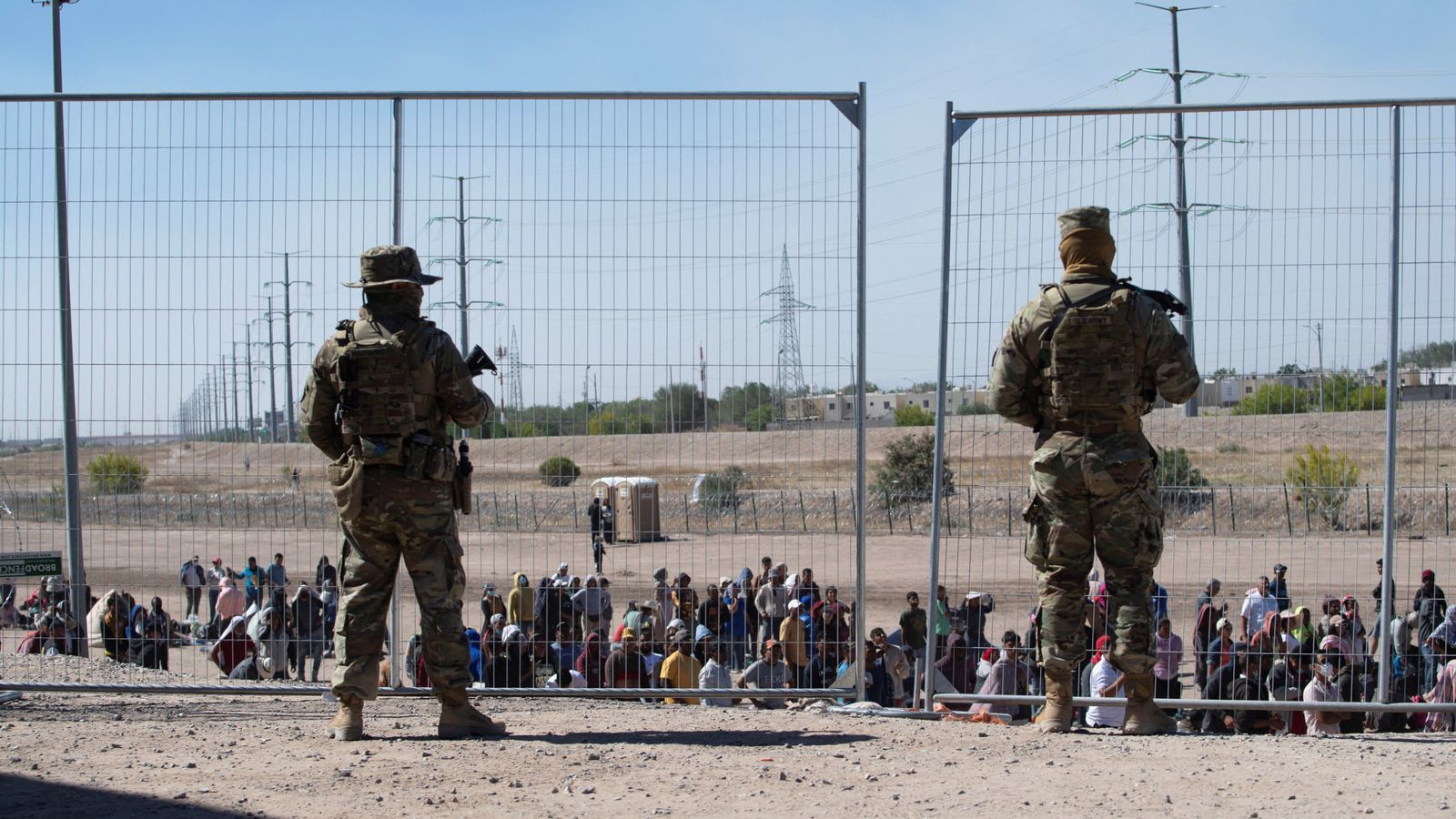Race to US border: What does the end of Title 42 mean?

Title 42 was a law that enabled the US to halt entries into the country to stop the introduction of communicable diseases.
It was enacted in the Trump era to prevent the spread of COVID, allowing authorities to quickly deport migrants to Mexico or back to their countries of origin.
Since the introduction of Title 42, it was used to remove migrants more than two million times.
But it’s now expired because the COVID public health emergency is coming to an end – as the pandemic recedes, so does the need for Title 42.
It ended at midnight eastern time (5am UK time).
In the lead up, migrants raced to enter the US before the restrictions lifted. At the Mexican city of Matamoros, across from Brownsville, Texas, groups of migrants – some clutching small children – waded across a river and pushed through thickets to get to the barbed wire border.
Others settled into shelters in northern Mexico, determined to secure an asylum appointment that can take months to schedule online.
Officials say the number of those crossing the border surpassed 10,000 a day and is rising.
Read more:
Biden administration proposes tougher rules at border
Advertisement
Border Patrol stations and holding facilities are stretched beyond capacity, and agencies dealing with migrants’ interests talk of a “humanitarian crisis”.
Cities like El Paso on the Texas border with Mexico have declared a state of emergency as they struggle to cope with the numbers.
The Biden administration is sending 1,500 active-duty troops to join 2,500 National Guard personnel at the border to help manage the situation.
Fears that it will become more difficult to get into the United States prompted many to make the journey before midnight on Thursday, when Title 42 ended.
But there are also concerns from some that there will be a surge in people trying to enter the US following the switch.
Either way, the border remains under pressure and a live issue in American politics.
New rules criticised
As Title 42 ends, migrants will face new restrictions on entry.
They won’t be allowed in if they arrive at the border without first applying online, or seeking asylum in a country they passed through to reach the US.
Anyone caught crossing the border illegally won’t be allowed to return to the US for five years and, if they do, they face criminal prosecution.
Read more US news:
Man shot at 47 times sues police
Trump calls sex accuser a ‘wack job’ and refuses to back Ukraine
Trump’s lies triggered shocking laughs in TV town hall
Human rights groups have criticised the new rules, saying they wrongly assume safety for migrants in countries outside the United States, and the efficiency of an online application system that has proved unworkable for the vast majority.
The restrictions are being introduced in tandem with other measures to encourage migrants to enter the US legally.
This includes plans to set up US immigration centres in different countries as well as an expansion of “humanitarian parole” for 30,000 people per month from Haiti, Cuba, Venezuela and Nicaragua.
Under the scheme, they can stay and work in the US for two years, with the support of a sponsor.